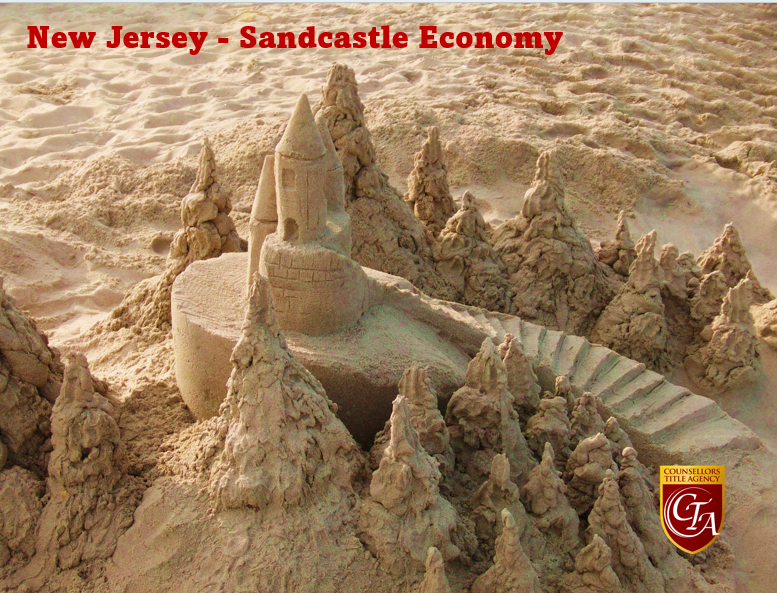
by: Anthony DiMaio
Some economies look impressive from a distance—polished, intricate, even admired by onlookers. But up close, their foundations tell a different story. They are built on sand. And sand, no matter how carefully shaped, is the least stable of all foundations.
Living in a Jersey Shore town, I see it every summer. Families and tourists flock to the beach, armed with buckets, shovels, and grand ambitions. In a matter of hours, the shoreline becomes a gallery of elaborate sandcastles—arches, towers, walls, even moats. But every builder knows the truth: these structures are temporary. One incoming tide, one gust of wind, and the entire masterpiece collapses.
This is exactly how unsustainable economies operate. They look strong until the conditions change. The problem isn’t in the craftsmanship—it’s in the foundation. Without a base of sound principles, long-term planning, and disciplined decision-making, all the intricate work eventually washes away.
New Jersey offers a real-world example. The state is rich in resources, strategically located, and ideally positioned for commerce, finance, and shipping. Yet it has become the highest-taxed state in the nation, driving out the middle class and weakening its economic core. This is not a shortage of opportunity—it’s a failure of discretion. Leadership has chosen short-term gains over sustainable growth, building higher “sandcastle walls” instead of reinforcing the ground beneath.
The shift from a sandcastle economy to a sustainable one requires more than cosmetic fixes. It demands leaders who understand the principles that endure, who can read the landscape, anticipate the tide, and make hard choices before the water rises.
Because no matter how impressive the architecture, if the foundation is sand, the tide always wins.
Part 2: A Call for a New Economic Revolution
If the Sandcastle Economy is a warning, then the time for polite discussion has passed. New Jersey doesn’t just need an adjustment—it needs a revolution of thought, policy, and leadership.
We need not one, but several Paul Revere-type leaders—individuals who will ride ahead of the crowd and sound the alarm. Their cry will not be “The British are coming!” but “Economic insolvency is coming!” They must be willing to wake the sleeping, shake the complacent, and break the illusion that the rising tide will somehow spare us.
But sounding the alarm is only half the task. The other half is economic intervention—a direct, coordinated effort to reverse the structural weaknesses that have been ignored for too long. Intervention means confronting unsustainable tax policies, fostering an environment where the middle class can thrive again, and attracting industries that can anchor a stable future. It means trading short-term political wins for long-term prosperity.
True revolutions are not born in think tanks or whispered in boardrooms—they are fueled by leaders who combine vision with courage. New Jersey’s future depends on those willing to ride into the storm, rally others to the cause, and insist that the foundation be rebuilt before the tide comes in.
Because the tide is coming. And this time, we can’t afford to lose the castle.
